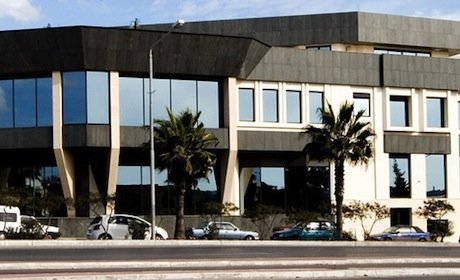
Gaming companies licensed here are generating for themselves tens of billions of euro in turnover. The revenues they attract are truly mind-boggling. They pay little tax and dodge regulatory bullets like they were made of water. The technology designing games has a moderate recreational value but they can hardly be said to be enriching the community’s culture however you define that term. They are sponsors of many valuable charities, particularly sports, but given a chance tobacco would be as well.
Considering the mind bending amounts of money these businesses are raking in, a fair share of that wealth should be trickling down our economy. If you think higher rent rates is an economic benefit, your expectations of a trickle down economy are very low.
Consider for example the continued depression on salaries. Stratospheric pay packets paid by the gaming industry for specialist technologists are legendary though not quite what they used to be. But the large bulk of people works on the shop floor providing customer support and back office handling. Those people — local or foreign — are earning around €20,000 a year.
That’s not as much as it sounds. It’s a take home pay of €1,310 a month. A sensible rental budget for that income ought to be of around €470 a month. If you’re going to be aggressive, and assuming you have no other commitments like car or student loans, you can stretch that to €600 a month. Have you looked at the type of properties available for those prices lately?
If instead of renting you’re going to take out a mortgage, repaying €500 a month, the best you can do is a property of around €160,000. That assumes you have 20% of that sum saved up, but it also, perversely, assumes you have 40 years of work still ahead of you. So it rules you out if you’re divorced, or an immigrant making your life out here. It’s in practice reserved for a very small portion of people seeking a place to live in and at that affordability figure, it’s not going to be much.
So these people, the bulk of the employees in this multi-billion euro industry, are having a tough time.
It’s partly the reason why it’s so hard to find resources willing to do this work. If the labour market was as tight as it is described the laws of supply and demand would force these salaries up. But any gap in resources is being rapidly filled by people from tighter labour markets at home who are willing to live 5 to an apartment to get these jobs in Malta.
This is draining quality of life. But there are surprising ways why this imbalance is not so visible.
The amount of people willing to live 5 to an apartment is turning everyone who owns a garage or the airspace for an upstairs flat into property tycoons. People have stopped working because they put a toilet in their garage and turned it into a dormitory for South Asians who share a stupid monthly rent in exchange for taking turns to take a shit in the same room as their four flat-mates are tossing their masala.
An everyone-is-a-landlord economy brings short terms returns that are profoundly damaging to the future prospects of the country.
One obvious consequence is the blinding greed for development where every house, once the pride of generations of owners, is being turned into an unsightly pile of coops for rent.
But there are less obvious repercussions.
Easy money is addictive and numbs the creativity and entrepreneurship that turn a challenge into an opportunity. Sticking a toilet and a shower curtain into a dingy corner of a garage and calling it a dormitory għas-suwed does not amount to business innovation. Our dependence on the exploitation of property is the primary cause of the national indifference to learning. Why work for your money if you can live off the back of imported slaves?
And then there’s one other consequence which closes the circle with the low salaries paid to the bulk of employees working in super-profit industries. The willingness of people to live in conditions till now considered unacceptably crowded and unhygienic pushes up the cost of a roof under which to live. That’s why a €20,000 salary doesn’t take you anywhere these days.
There’s a market failure here which is having a deep impact on the social and economic cohesion of the country. Inequalities are growing and the sustainability of the economy is creaking. Our income largely depends on businesses that stay here for as long as the going is good. If we were to experience a dip in immigration because of harder economic times — and a worldwide recession looms around the next corner — we’ll have lost the ability, the inclination, and the educational and intellectual faculties of creating new lines of economic activity that can sustain us through leaner years.
Neocon dogmatists — I’m talking to Manuel Delia of 20 years ago — will start bristling at the suggestion that the market should not be left to its own devices.
But bear with me. We are already intervening in the market. The gaming industry did not pick Malta as a location because of the beaches. Like, say, financial services, gaming chose Malta because of a state-perpetrated market intervention. They come here because we have a crafty tax arrangement that allows crafty businesses to operate in a practical zero tax environment. As anyone who gives up a third of all they earn before they earn it and then pay a fifth of all they spend in taxes knows, tax is an inherent component of the market.
Removing the commitment to tax, amounts to a market intervention.
We may have overdone our zero-based commitment.
Consider for example that the Malta Financial Services Authority will need a subvention from the consolidated fund (that’s the kitty into which you and I pay tax) so that it can continue to regulate the financial services business: that’s all the international banks that use Malta to funnel tens of billions of euro in one end of here and out the other while avoiding to pay practically any tax on it.

It’s a perverse state of play when all those billions do not leave enough trickle down in the public coffers to pay for their own regulation.
The tax breaks on financial services are supposed to benefit you and me: surely our government is not depriving itself of tax revenue for the benefit of the international businesses that employ almost no one here. Surely these tax incentives are intended to benefit Malta’s economy. And yet here we are seeing a portion of our taxes which we generated from economic activity unconnected with financial services being spent to regulate an industry we’re not making money from.
This is as illogical as subsidising the dockyards so that workers there continue to pick up a salary in a business with no customers.
Consider further the potential tax revenue we are talking about. While the Italian authorities try to clamp down on the owners of Planetwin365 for allowing the mafia to launder their money through their Malta-licensed business they went the Al Capone way and charged them for tax evasion.

For one year of business they charged them with under-declaring their revenue by €4 billion euro. Four billion. That’s just slightly less than the entire public revenue for Malta’s government in 2018. And that’s just one company and what it is accused of under-declaring.
Surely these businesses can afford to pay a little more tax.
Surely the financial services clients of the MFSA can be charged a little bit more so their regulator can function without billing its operation to the rest of us including, ironically, to those employees working for €20,000 a year.
Surely the gaming industry can afford to contribute some more to the cost of hospitalising any of its employees that might get sick.
Because here’s the beauty of the economic circle.
Government’s €4.6 billion in revenue means that it has to be stingy in paying its own employees providing front line public services. If it pays more it would be spending more than it’s earning and it can’t do that.

We’ve had some discussion about how much our Parliamentary Secretaries are paid. But that’s only an interesting discussion because of all the fake outrage Labour had indulged in when Lawrence Gonzi allowed his Ministers to collect their Parliamentary honoraria only to take it away from them when all hell broke loose. But that’s just 20 people.
The real issue in government salary spending is in the fact that it pays the teacher of your children €21,000. It pays the nurses taking care of you in hospital €22,000. It pays the Police constable on your village beat €17,000.

These people are struggling to get a mortgage too. They’re struggling to find a decent place to live whether to rent or to buy too. And they’re being squeezed out of decent living as much as the support staff working at the gaming company for about the same salary.
If teachers don’t earn enough to live decently and take pride in their own home, no wonder this has become a country that gives no value to learning.
So back to the neocon dogmatists and their agonising anticipation of some Marxist solution to the injustices of our economic model. I do not have a Messianic solution: there’s no immanentisation of the escathon (read all about that here). I actually think the government should intervene a little bit less than it is because the government’s policies are at the heart of the market failure we are suffering.
Businesses — like gaming and financial services — should be paying more tax. They will threaten closure and some will close and downgrade to some coconut island in the South Pacific. But in the balance of things it seems that the impact of that can be rebalanced with a new deal with international businesses that choose Malta, aye for its tax advantages but with some moderation and mitigation with other benefits we seek to offer.

And government should ensure these business pay decent salaries here: not by fixing salaries or legislating for forced collectivisation as the General Workers’ Union rather stunningly proposed recently. It should do so by creating a little bit of salary inflation: increased government revenue should allow it to pay teachers, nurses, police officers and other front line public service providers better salaries. Aspiring for double what they’re earning today should not be unrealistic though of course sudden shocks are unhealthy and should be eased in gradually.
Salary inflation creates motivation, and motivation is what drives and incentivises learning and upskilling. If teachers are better paid we have a better chance of securing that. And if our labour force is skilled we have a better chance of surviving future slumps in our economic realities.
The worst way to plan for an economy is to consider the status quo as a sacred cow, to be scared of challenging existing realities even if — nay, especially if — they are generating a lot of money.
We need to think again.